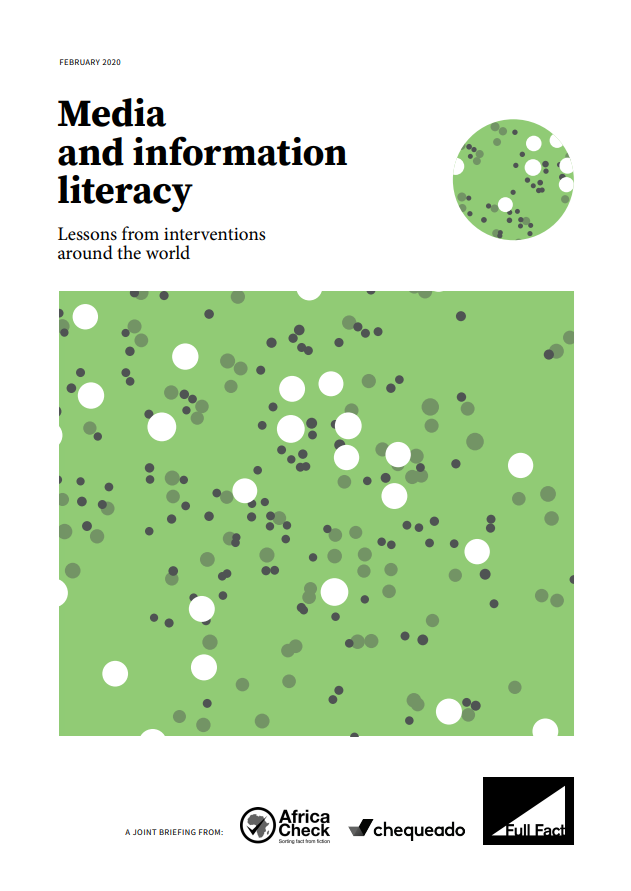We can all agree that misinformation can cause real harm to people’s lives and the search is on for evidence on how to tackle it.
This briefing paper is part of a research programme set up Africa Check, Full Fact and Chequeado to help find that evidence.
The briefing, authored by Full Fact researcher, Dr. Dora-Olivia Vico and the research team at the Africa Centre for Evidence presents findings from specific countries (Uganda, Argentina and the UK) and makes some recommendations.
“Overall, we find that media and information literacy programmes show great promise. Interventions with young and adult participants, including long-term classroom training or just short trainings online, were all able to improve audiences’ ability to think more critically about the information they encounter.”
Media and Information Literacy: Lessons from interventions around the world
The briefing recognises that there is ‘no one size fits all’ formula for developing and delivering MIL interventions and interventions can take many forms, from classroom interventions with children to podcasts and online training for adults, and even newsroom-style games harnessing the power of play. It was also noted that interventions with more sessions had stronger positive effects.
The researchers acknowledged the need for more evidence to assess how the lessons imparted during the interventions translate into real world behaviours. However, overall it was felt that media and information literacy initiatives “increased participants’ knowledge, criticism and awareness of the influence of the media”.
